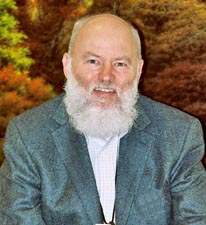Mindfulness Practice with Jeff Brantley
Mindfulness for Personal and Professional Practice presented by Jeff Brantley
Printable Handouts: 6 slides per page or 3 per page with space for notes or view full size, color slides
Friday, January 15, 2016, 9-4:30 pm at the Tate-Turner-Kuralt Auditorium of the UNC School of Social Work, Chapel Hill, NC
When: Friday, January 15, 2016, 9-4:30 pm, with a 1 hour lunch and 15 minute breaks
Where: UNC School of Social Work Auditorium, 325 Pittsboro Street, Chapel Hill, NC Directions and parking
CEUs: 6 hours of credit
Description: Mindfulness is becoming something of a mainstream concept, and is more and more foundational for a variety of psychotherapeutic approaches (e.g., CBT, ACT, DBT, MBSR, as well as psychodynamic therapy). Mindfulness practice is core to strengthening the mindfulness elements of any “mindfulness-based approach or intervention.” Rather than a “technique,” this workshop explains mindfulness as a more generic way of relating or being in one’s life that emphasizes greater moment-by-moment awareness. Research shows the benefits of being able to slow down, increase awareness, engage with “thoughts” as “thoughts,” and nonjudgmentally accept the reality before us. In this workshop, Jeff Brantley will explore the rationale for mindfulness and the importance of recent research findings, and elaborate on how its practice allows for improvement across a wide array of life domains. He will guide participants on ways to develop and deepen their mindfulness practice as well as utilize and teach mindfulness as part of their professional practice. This includes how to guide meditation and talk with clients about mindfulness.
This event will include live American Sign Language (ASL) interpreter service. ![]()
Trainer:

Jeffrey Brantley, MD, DFAPA, is a board-certified psychiatrist and the founder of the Mindful-Based Stress Reduction program at Duke Integrative Medicine. He has been practicing meditation for more than 30 years, and began teaching mindfulness meditation to health professionals and others in 1990. He has participated in intensive meditation retreats, practicing with a variety of teachers, including Joan Halifax, Thich Nhat Hanh, Larry Rosenberg, Christina Feldman, and members of the Amaravati Buddhist monastic community. He has also completed the professional training for Mindfulness-Based Stress Reduction offered by Jon Kabat-Zinn and Saki Santorelli. He is author of best-selling books on applying mindfulness to life, including the “Five Good Minutes” series, and Daily Meditations for Calming Your Anxious Mind.
Schedule:
- 8:30 – 9:00 – registration and sign-in
- 9:00 – 10:15 – science supporting mindfulness practice and its benefits: how mindfulness changes health, brain, body
- 10:15 – 10:30 – break
- 10:30 – 12:00 – what mindfulness is and isn’t, and how to practice
- 12:00-1:00 – lunch
- 1:00 – 2:30 – how therapeutic work grows from mindfulness (including empathy, resilience, and burn-out)
- 2:30 – 2:45 – break
- 2:45 – 4:30 – more specific applications of mindfulness
Handouts: All handouts for the event are posted on the top of this event’s page.
Register Here
Learning Objectives:
At the completion of this program, participants will be able to:
- Understand the practice of mindfulness through direct practice experience.
- Name the 3 critical elements of any mindfulness practice.
- Discern how mindfulness underlies at least 2 therapeutic approaches.
- Describe the science supporting mindfulness practice and its benefits.
- Identify at least 2 elements in communicating about mindfulness effectively with clients.
- Identify at least 3 different elements that support a personal practice of mindfulness in daily life.
- for mindfulness, stress, and health: Full Catastrophe Living, by Jon Kabat-Zinn, Bantam Books, New York, 2013.
- for mindfulness and psychotherapy: Mindfulness and Psychotherapy, edited by Christopher K. Germer, Ronald D. Siegel, and Paul R. Fulton, Guilford Press, New York, 2005.
- for mindfulness and diet/weight management: The Mindful DIet, by Ruth Q. Wolever, PhD, and Beth Reardon, MS, RD, LDN, with Tania Hannan, Scribner, New York, 2015. (note, Ruth and Beth are long time colleagues and friends of mine through our work together at Duke Integrative Medicine).
- for an introduction to mindfulness, meditation and neuroscience: Buddha’s Brain, by Rick Hanson, PhD, New Harbinger, Oakland, 2009.
- for survey of mindfulness in America in a variety of walks of life: A Mindful Nation by Congressman Tim Ryan, Hay House, Carlsbad, California, 2012.
- for mindfulness applied to a large, successful business culture (Google): Search Inside Yourself, by Chade-Meng Tan, Harper One, New York, 2012.
Payment and refund policies: No refunds. You may transfer your place to a colleague. Please contact Deborah Barrett, Ph.D., LCSW at dbarrett@unc.edu or (919) 843-5818 to make arrangements, or if you have any other questions.
Information on Continuing Educational Credit:
Training will provide 6 Contact Hours from University of North Carolina Chapel Hill School of Social Work.
6 Contact Hours NBCC (provider #6642) The UNC School of Social Work is an NBCC-Approved Continuing Education Provider (ACEPTM) and may offer NBCC-approved clock hours for events that meet NBCC requirements. The ACEP solely is responsible for all aspects of the program.
The program is co-sponsored by the North Carolina Psychological Association and the UNC School of Social Work. The North Carolina Psychological Association is approved by the American Psychological Association to sponsor continuing education for psychologists. The North Carolina Psychological Association maintains responsibility for this program and its content. This program is offered for 6 hours of continuing education credit.
Attendance Policy: – To receive credit, you must be present for the entire session, and you must sign the sign-in and sign-out sheets (for psychologists). No partial credit will be given. No credit will be given to participants who are more than 15 minutes late at the beginning of any session. No credit will be given to participants who leave before the close of a session.
How to access UNC wireless: info on connecting to wireless at UNC
Additional questions? Contact Deborah Barrett, PhD, LCSW at dbarrett@unc.edu or 919-843-5818
***Live Sign Language Interpreter ***
